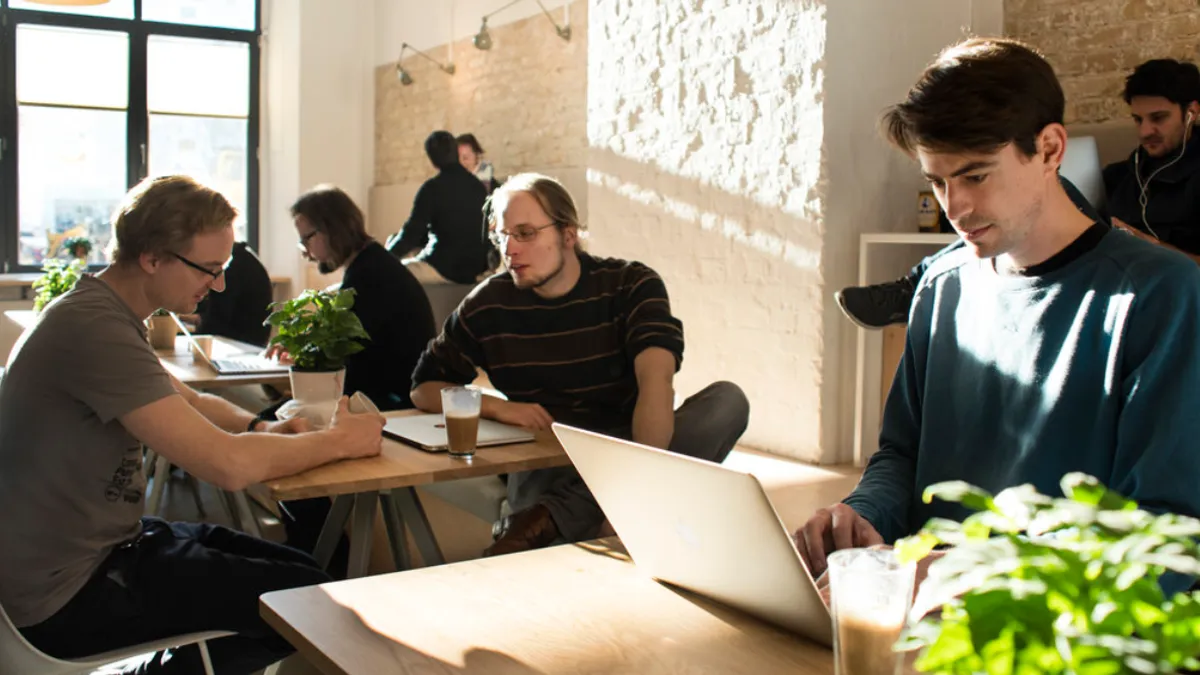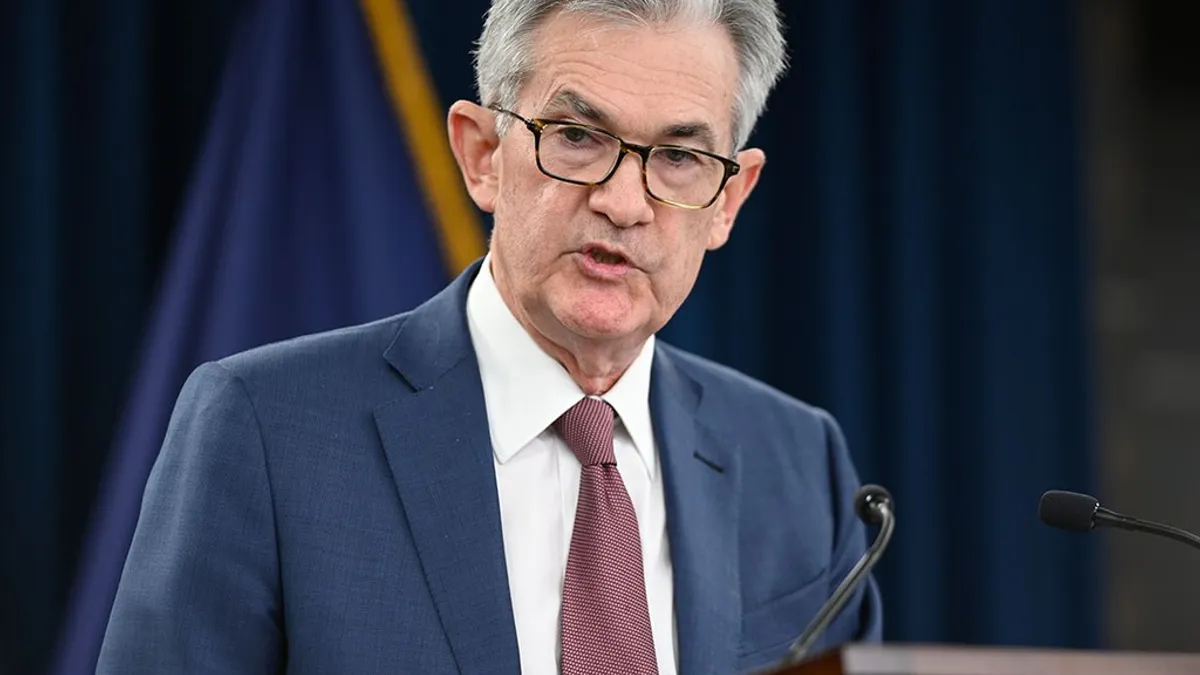At the beginning of 2020, Contentful CFO Markus Harder was planning a capital raise for the company later in the year or early 2021, but COVID-19 intervened. The company's new CEO asked him to lead a fundraising effort immediately even though the company was in a relatively good cash position.
"He pushed me and said we need to get money now," Harder said in a CFO Thought Leader podcast. "'You don't know how long this lasts.' I'm like, 'Not another fundraise; give me a couple of more months to figure out our NetSuite implementation and a couple of internal projects,' and he said no, now is the time."
Harder, who joined the content management software company in 2017 as its first CFO, went back to its lead investor in its latest fundraise, a Series D round, and secured its commitment for additional investment — to "fill up the gas tank," as he put it.
"They said they would uphold the terms they had indicated to us pre-COVID," he said. "They stuck with us through the entire process. There was never any doubt they would retrade or take us for a ride, so we're lucky to have high-quality investors."
Subscription revenue
A key to its committed investors is the company's strong recurring revenue business model, Harder said. The company has about 2,200 customers, including almost 30% of Fortune 500 companies, who've built their websites, blogs, mobile apps, and other interfaces using the company's platform.
"We have a very sticky product," he said. "That allows me to sleep quite well, because today's revenues are probably going to be smaller than tomorrow's revenues, just because our customers are quite happy with us."
Harder likened the company's content management system (CMS) to the CRM or ERP that companies use; once they adopt it, it becomes a major decision to stop using it and go with something else because so much gets integrated into it.
"You don't easily rip and replace a CMS," he said. "Once you're in, you're probably going to be in for a relatively long period of time."
Harder said he has to check himself when he talks about the company's prospects to investors, because the product's stickiness, when it's modeled out into the future, can lead to overly optimistic forecasts.
"When I talk about customer lifetime value, I cut it somewhere, because if I just do one divided by churn, I get into double-digit years of lifetime," he said. "So, I'm, like, 'Okay, let's not overstate this here, because who knows how the world looks in 10 or 15 years?'"
Growth challenge
Since the company's launch in 2013, it's been doubling in growth each year, a trajectory that will get harder to sustain as it matures.
"If you want to double revenue again you need to have a massively bigger pipeline," he said. "So, we're doing more with existing customers. They have requirements that today we can't fulfill, so how do we get them to be successful in all those things they want to do?"
One way it generates growth is to offer up a free version of its platform to developers in large companies so they can have a place to experiment. What tends to happen, he said, is these developers become advocates for their products, so when it comes time for the CIO or other executive to lead a digital transformation, the developers get the CMS added to the technology stack.
"We often start as a side gig of one of those corporations and typically they already have five or 10 CMSs running," he said. "The content is siloed and never in the place where you need it, so we come in on the side. Then we're powering their .com website. The internal teams of developers, the editors, find the usage and ease of integration better."
Banking roots
Harder started in finance on the investment banking side in his native Germany working for Morgan Stanley.
"I probably could have kept going forever in that job," he said. "It was the fundraising, the high speed, the pressure, the M&A processes, the rigor that I learned."
After a decade he returned to school for a Ph.D. in management science and then joined a startup, Zalando, a Germany-based online fashion and lifestyle platform, where he was asked to lead the company's expansion into the United Kingdom.
"We had a big vision," he said. "We had a playbook."
But the expansion sputtered out. "We were very execution focused, but that wasn't enough," he said. "I wasn't the right leader for that market. The U.K. seems to have already been penetrated by local players and brick-and-mortar businesses that had figured out how to sell online. They could deliver materially faster than anything we could ship from Germany."
The lesson he learned from that, Harder said, is that data-driven decision-making alone is not enough.
"You can have a playbook, execute relentlessly, focus on things with a quantitative lens and collect as much data as you can get," he said. "I learned what I'm not good at."
The experience helped inform him when he joined SoundCloud in 2012 as its vice president of finance. There the challenge was how to monetize the audio-streaming site, which until that point was popular with content producers and listeners but not making much money.
"We needed to figure out our business model fast," he said. "We had the option between getting litigated off this earth or striking a deal and making a run for the money."
The executive team quickly found it hard to replicate the success of Spotify, which made the bulk of its money charging consumers a subscription fee.
"We had a massive user base of people who were used to not paying," he said.
The platform's core revenue came from content producers, who paid for premium services to upload and distribute their content. But that wasn't generating enough revenue to cover costs.
"We had to restructure," he said. "We had to do mass layoffs at one point."
If he had to manage SoundCloud's problems again, he would probably take the same approach, he said, but with a harder edge. "We'd possibly be a bit more strict around monetization, sacrificing user experience, but we were caught between a rock and a hard place."
IPO plans
At Contentful, Harder is asking his finance and accounting teams to act as if the company will go public in a few years. Whether the company will take that step can't be known, but he's using the goal to set a standard for how his team should structure its work.
"That's the North Star," he said. "It doesn't mean we will go public. But it's a North Star I'm instilling in my team because the quality of financials, the quality of processes that I want to see us have, is that of a public company."
To that end, he's continuing to invest in automation and finance systems and hire more staff, despite the pandemic.
"You can never assume business will come back to normal levels quickly," he said. "Whatever is coming out at the other side will look different, but if you have a business model that somewhat remains strong, now is the time to invest."





















